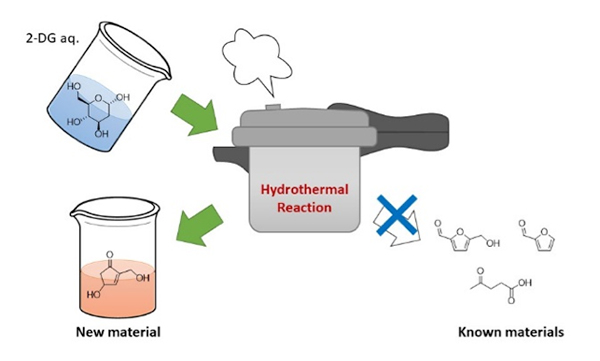 Researchers have identified a one-step process to easily convert a plant-based sugar into a chemical compound, which can then be used to manufacture other substances, including a natural pharmaceutical used to treat conditions such as congenital heart disease and erectile dysfunction.
Researchers have identified a one-step process to easily convert a plant-based sugar into a chemical compound, which can then be used to manufacture other substances, including a natural pharmaceutical used to treat conditions such as congenital heart disease and erectile dysfunction.
Tohoku University and FromSeeds Corporation in Japan found that heating a sugary solution derived from biomass produced the useful compound without the need for other catalysts, according to a study published in the Bulletin of the Chemical Society of Japan.
Biomass, such as animal manure, crop waste, and forest debris, is used for energy production and other industrial processes, or as a raw material in chemical manufacturing. Glucose from sugarcane and corn crop waste, for example, can be used for manufacturing chemicals such as ethanol (used as an antiseptic), carboxylic acid (used in soft drinks) and furfural (used as a weed killer).
Hitoshi Kasai of Tohoku University’s Institute of Multidisciplinary Research for Advanced Materials and colleagues wanted to develop a simplified approach to make products from biomass-derived compounds that can then be used to manufacture other fine chemicals.
Theirs is a simple one-step approach that converts the sugar 2-deoxy-d-glucose, which can be prepared from d-glucose, into a compound called 4 hydroxy-2-(hydroxymethyl)cyclopent-2-en-1-one. The process involves heating a watery solution of 2-deoxy-d-glucose to 140°C for 28 hours, to convert 80% of the sugar into the second compound. Heating the sugar to 160°C for seven hours produces a 74% yield. Their method, which is similar to a pressure-cooker, uses a lower temperature and pressure than those applied in general biomass processes, and does not use catalysts. A previous study reported producing the second compound from quinic acid using a ten-step process with a yield of only 3.5%.
The team then demonstrated that 4 hydroxy-2-(hydroxymethyl)cyclopent-2-en-1-one could be converted to prostaglandin E1, a compound used as a natural pharmaceutical for treating conditions such as erectile dysfunction in men and a type of congenital heart disease in babies.
The researchers anticipate that 4 hydroxy-2-(hydroxymethyl)cyclopent-2-en-1-one can be used as an important building block for the manufacture of other useful compounds. “We are convinced that pushing forward research on conversion of modified sugars will lead to the discovery of more valuable compounds in the field of biomass chemistry,” they conclude.








